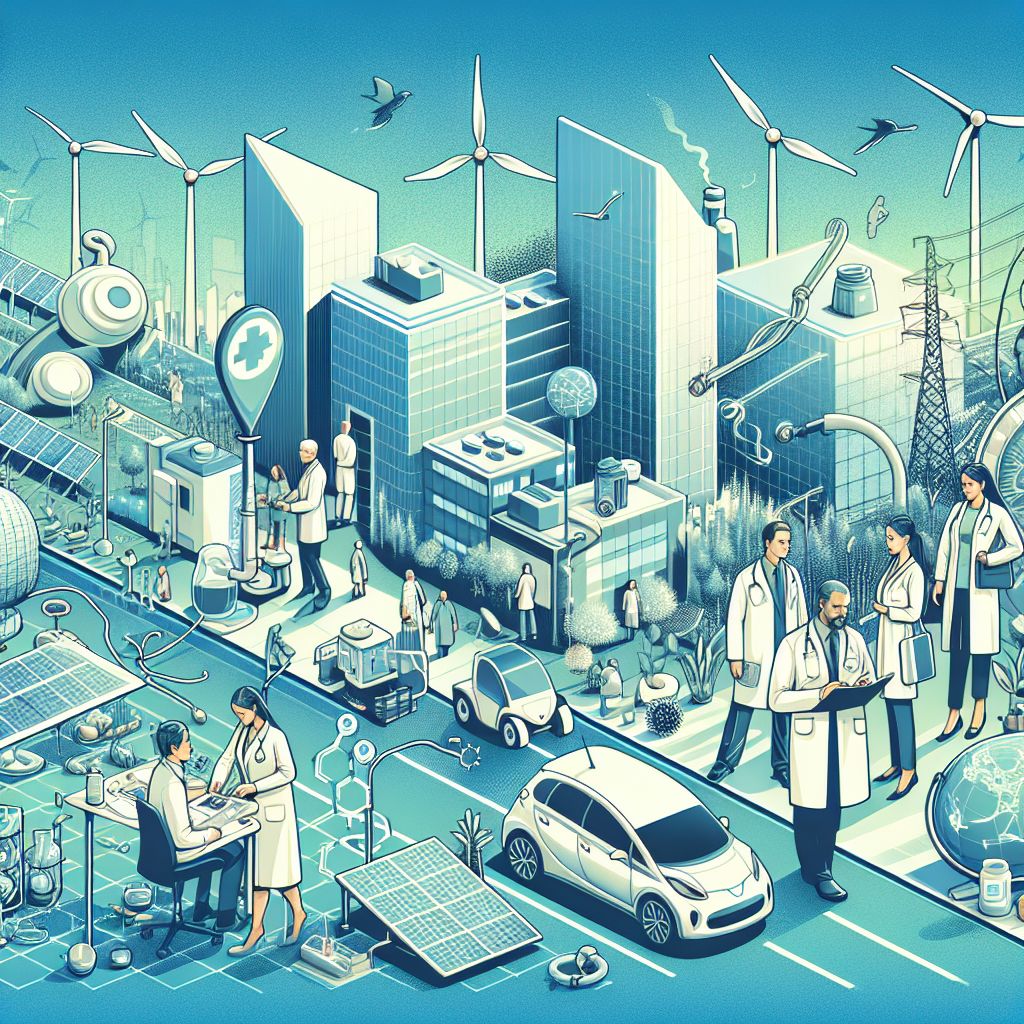Table of Contents
- Introduction: The Essential Role of Developed Nations and Healthcare Professionals in Addressing Climate Change
- The Responsibility of Developed Nations
- The Influence of Healthcare Professionals
- Climate Change as a Public Health Issue
- Policy Changes and Green Initiatives
- Conclusion: A Combined Effort
Introduction: The Essential Role of Developed Nations and Healthcare Professionals in Addressing Climate Change
The ongoing debate about climate change has seen a shift in focus. An increasing number of studies and discussions are centering around the role of developed nations and their healthcare professionals in mitigating the impacts of climate change. The contribution of these nations and their healthcare sector towards climate change is considerable for three primary reasons:
• Developed nations have the resources and influence to implement changes that can curtail the environmental impact.
• Healthcare professionals have a unique position to advocate for climate change mitigation as a public health issue.
The Responsibility of Developed Nations
Developed nations, often considered the economic powerhouses of the world, have a significant role to play in managing the climate crisis. These countries possess the financial and technological resources to invest in sustainable and green initiatives. They have the ability to set examples for other nations to follow, demonstrating the feasibility of implementing environmentally friendly practices. Furthermore, developed countries are responsible for a significant portion of global emissions, and therefore, have a moral obligation to take the lead in addressing climate change.
The Influence of Healthcare Professionals
Healthcare professionals hold an influential position in society and can play a pivotal role in the fight against climate change. Their role goes beyond treating climate-related illnesses – they can advocate for policies and practices that mitigate the impact of climate change on public health. Healthcare professionals can educate the public about the adverse health effects of climate change, encouraging individuals to take action. Additionally, they can push for sustainable healthcare practices, thereby reducing the environmental footprint of the healthcare sector itself.
Climate Change as a Public Health Issue
Climate change is increasingly being recognized as a public health issue. Rising temperatures, extreme weather events, and increased transmission of vector-borne diseases are just a few examples of how climate change can impact health. Healthcare professionals are on the frontline, observing these impacts firsthand. Their experiences and knowledge can help shape public opinion and policy, making them vital allies in the fight against climate change.
Policy Changes and Green Initiatives
One of the most effective ways to combat climate change is through policy changes and green initiatives. Developed nations have the capacity to implement these changes, with healthcare professionals often taking the lead in advocating for them. Policies could include transitioning to renewable energy sources, promoting sustainable agriculture, and improving waste management systems. Furthermore, healthcare professionals can advocate for policies that reduce the environmental impact of healthcare, such as reducing waste and energy consumption in hospitals and clinics.
Conclusion: A Combined Effort
The fight against climate change requires a collective effort. Developed nations, with their resources and influence, and healthcare professionals, with their unique position in society, both have pivotal roles to play. By working together, they can bring about meaningful change, ensuring a healthier and more sustainable future for all.
There’s a practicality to this interdisciplinary approach that cannot be overstated. By leveraging the expertise of both health professionals and environmental experts, we can create comprehensive strategies that address both individual health and environmental sustainability. These two fields are intrinsically linked; environmental issues such as pollution and climate change directly impact public health, causing a myriad of health problems including respiratory illnesses, infectious diseases, and even mental health issues. Therefore, a combined effort is crucial for tackling these multifaceted problems.
Moreover, this collaborative approach stimulates innovation. Diverse perspectives lead to fresh ideas and novel solutions. For example, an environmental scientist might suggest implementing green technologies in healthcare facilities to reduce their carbon footprint, while a healthcare professional could propose integrating environmental education into public health campaigns. Collaboration presents opportunities to transcend traditional boundaries and create holistic solutions that benefit both human health and the environment.
However, successful collaboration requires clear communication and mutual understanding. Both environmental and health professionals must learn to appreciate the intricacies of each other’s disciplines. They need to respect the complexity of the problems they are tackling and be willing to adapt their approaches accordingly. Only then can they truly harness the power of their collective expertise to drive meaningful change.
Indeed, the path toward a healthier, more sustainable future is a shared journey. It’s a journey that demands the best of our knowledge, creativity, and collaboration. With health professionals and environmental experts leading the way, we can look forward to a future that is not only healthier and more sustainable but also more equitable and inclusive. This vision is well within our reach, and it is one that we must strive to achieve for the benefit of generations to come.
